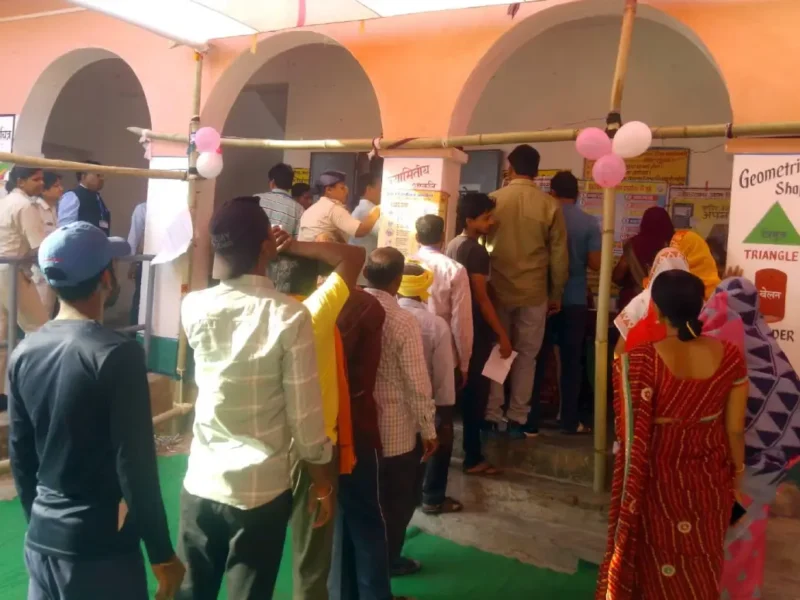
Wag the Dog Syndrome in Putin-American Politics
From Neera Kuckreja Sohoni, author and freelance journalist
In ‘Wag the Dog’ a 1997 movie, a fictional president (eerily similar to Bill Clinton) is caught in a sex scandal that is undermining his presidency. Asked to save it, a spin doctor determines distraction to be the antidote. A Hollywood producer is hired to help fabricate a war in Albania, which diverts the media’s attention to the impending war, and the presidency is saved.
As a phrase, ‘Wag the dog’ has become synonymous with the deliberate deceitful use of war to divert public attention away from a problematic political situation and to shore up a failing presidency.
A few weeks ago when polling showed Biden’s declining popularity, it was not hard to gauge that war or other threat to America’s survival would figure as being around the corner. Russia’s declining power during Putin’s long reign extending over 20 years and his faltering standing placed him in the same unenviable position as Biden, and as desperate to find a distraction.
To their joint rescue comes the Ukraine war!
In ‘The Spoils of War’ (2016), the co-authors suggest that decisions about conflict are too often driven by presidential ambition, avarice, and vanity. In choosing to start or enter a war, leaders are guided more by electoral politics than by honest, impartial cost-benefit analysis. Therefore warfare, unlike what presidents assert, is less about the president wanting to further the interests of ‘We the People,’ as much as about ‘Him the President’.
As an anxious world sits staring helplessly at Russia’s expansionist move to gobble up Ukraine, watching the lethal saga unfold – frame by frame – on television screens, it seems pointless now to wonder what led us to this juncture. What pinches is the cruel reminder that history repeats itself if its lesson is left unheeded.
Russia’s current invasion of Ukraine is a crisis that is neither sudden nor unexpected. In the woods of Belarus lie the embers that lit today’s fire. The fall of Soviet Union in 1991 was sealed when leaders of Russia, Ukraine, and Belarus met there and signed the pact acknowledging the break-up of the Soviet Union.
For Putin, it was the saddest day of his life and the most humiliating for his country. He neither forgave nor forgot the dismemberment of his nation, leaving him committed to reverse its dissolution.
Just because they parted, Putin did not accept that their separation was deep or lasting. Nor did he deem it incontrovertible. On the contrary, he never ceased to maintain that Ukraine and Russia are one people.
That he has not budged is clear from his recent hour-long televised address where Putin ranted about the unfairness of Russia’s humiliation by western countries, and the threats they increasingly pose to Russian security.
Putin’s relentless ambition to make Russia great again, or at any rate, to return it to what it territorially was once, seems neither to have been taken seriously nor correctly gauged and tackled. Western powers and America have lived in denial that Putin’s bid to force Ukraine’s accession to Russia merely concretizes his belief that Western powers overplay their security needs at the cost of shorting Russia’s.
Not surprisingly, a steadfast Putin has chewed up Biden as efficiently as he had Bush and Obama. For all its trespasses, Trump’s brashness at least kept the wolves out – whether from North Korea, China, Iran or Russia.
From Putin’s perspective, there is nothing outlandish about desiring to not have his country encircled by NATO. Kennedy, after all, did not accept Russian ambition to make Cuba its first line of defense. Even a kinder gentler Biden who loves open borders for America would not cordially abide either Russia or China hunkered down in Mexico. Putin is similarly entitled to be suspicious of nations sitting at Russia’s doorstep with potential of being lethally armed by NATO and threatening Russia’s integrity. Besides, there is the suicidal risk for a dictator to have democracy planted and blooming right in his backyard.
Historical precedence exists for Putin to be cautious of what can be justifiably seen as ‘dangerous’ expansion by NATO. Since the Soviet collapse, despite assurances to the contrary, NATO has calmly expanded to include Poland, Hungary, the Czech Republic, Bulgaria, Estonia, Latvia, Lithuania, Romania, Slovakia, Slovenia, Albania, Croatia, etcetera.
All along, Putin felt angry and betrayed, which resentment heightened with Ukraine’s current President eager and being seduced to join NATO, leaving Putin legitimately fearing that Moscow would be next.
In Ukraine, Putin saw an opportunity and necessity to stem the tide. Perhaps even to reverse it. If his Ukraine attack succeeds in replacing the existing regime with another friendlier one, he could either rest easy and go home with his country more secure, or in the style of egotistic leaders, he could decide to go deeper into Europe to forcibly or otherwise try to return the lost sheep to the fold.
Every nation that Putin manages to wean away from NATO is a feather in his cap, but more significantly, a steppingstone to a Greater Russia.
Given his steadfast vision, if western powers are being praised today as being absolutely right and justified in condemning Russia for its naked territorial aggression, equally, they must be considered absolutely wrong in dismissing Russia’s unchanging concern to not have its immediate neighbors host NATO or its weapons.
Past American leaders and advisors themselves have had doubts about following the expansionist course for NATO. In 2008, the current CIA Director reportedly warned Bush that expanding NATO would be perceived as a threat to Russia not only by Putin but by all Russians. Obama, for his two terms, stood by the same belief and declined to arm Ukraine with lethal weapons – knowing how much of a threat it would appear to Russia and its leaders, in turn provoking them to react aggressively.
Putin has been unambiguous about his peeves, and his intentions to address those peeves. Very recently, he openly declared he will attack Ukraine, unless NATO reassured him that they had no intentions of admitting Ukraine to NATO, and Ukraine assured him of never joining NATO.
Having failed to persuade Putin not to attack Ukraine, Biden is now faced with the humiliation of having to live with it. While vigorously deploring Russia’s invasion of Ukraine, Biden’s refusal to avert the crisis by offering Putin the reassurances he had demanded has left critics wondering why a promise to Putin that NATO will not expand to his border was not being considered and rendered.
One could ask why is it a disgrace to make that promise if it brings the grace of peace to the world? How is it better for democracies to first threaten a dictatorship with encirclement by NATO-friendly nations but then, after an enraged and power-drunk dictator ends up attacking the neighbor, to reverse engineer the blame for breach of peace by blaming Putin?
How can Biden’s reluctance to offer the assurance that could have averted and perhaps can end the Russian attack make us deem him a heroic champion of democracy, rather than as a failed guarantor of world peace? How is vilifying Biden as an appeaser like the British Prime Minister Chamberlain any worse than the castigation he has already faced following his feckless handling of America’s withdrawal from Afghanistan? If anything, giving such assurance as Putin has demanded might have earned and can still earn Biden some international goodwill along with greater support at home.
Democracy or Autocracy – war is in no one’s interest, except for black-marketeers and for failed politicians struggling not to drown in declining public confidence, and military juntas ever greedy to hog the spoils and fame of war. Wag the dog is hardly a rarity whether in American or world history.
The risk of two adversaries, nuclear armed and ready, coming to blows seems no longer fictional. Russia against USA is not a final varsity game that should excite us. It should be heart-stopping news.
Barely within 72 hours of the Russo-Ukraine war, senators and representatives from both parties are calling for higher military spending and more military aid to Ukraine. They thrive on a self-propelled system that keeps both war and profiteering going. Tripling the defense budget or doubling military aid to Ukraine has champions, but it is time consuming and a measure for the long haul. Time is not on our side when the world’s survival is at stake.
Unsurprisingly, there are also calls for revenge.
If America follows through on the path of retaliation, and it results in cyber or nuclear attack on either us or Russia, our leaders will be the ones culpable for ordering the world’s end. Worse, if a cyber war starts, the world will die less painfully and bloodily but more swiftly. As lights, water and heat die out and computer systems snap under the chokehold of malicious malware, people along with the system will die a quick shut down death.
Faced with Armageddon, Biden’s and Pelosi’s promise to keep us safe and to ease our pain at the petrol pump or the grocery store seems cheap and insults our intelligence.




